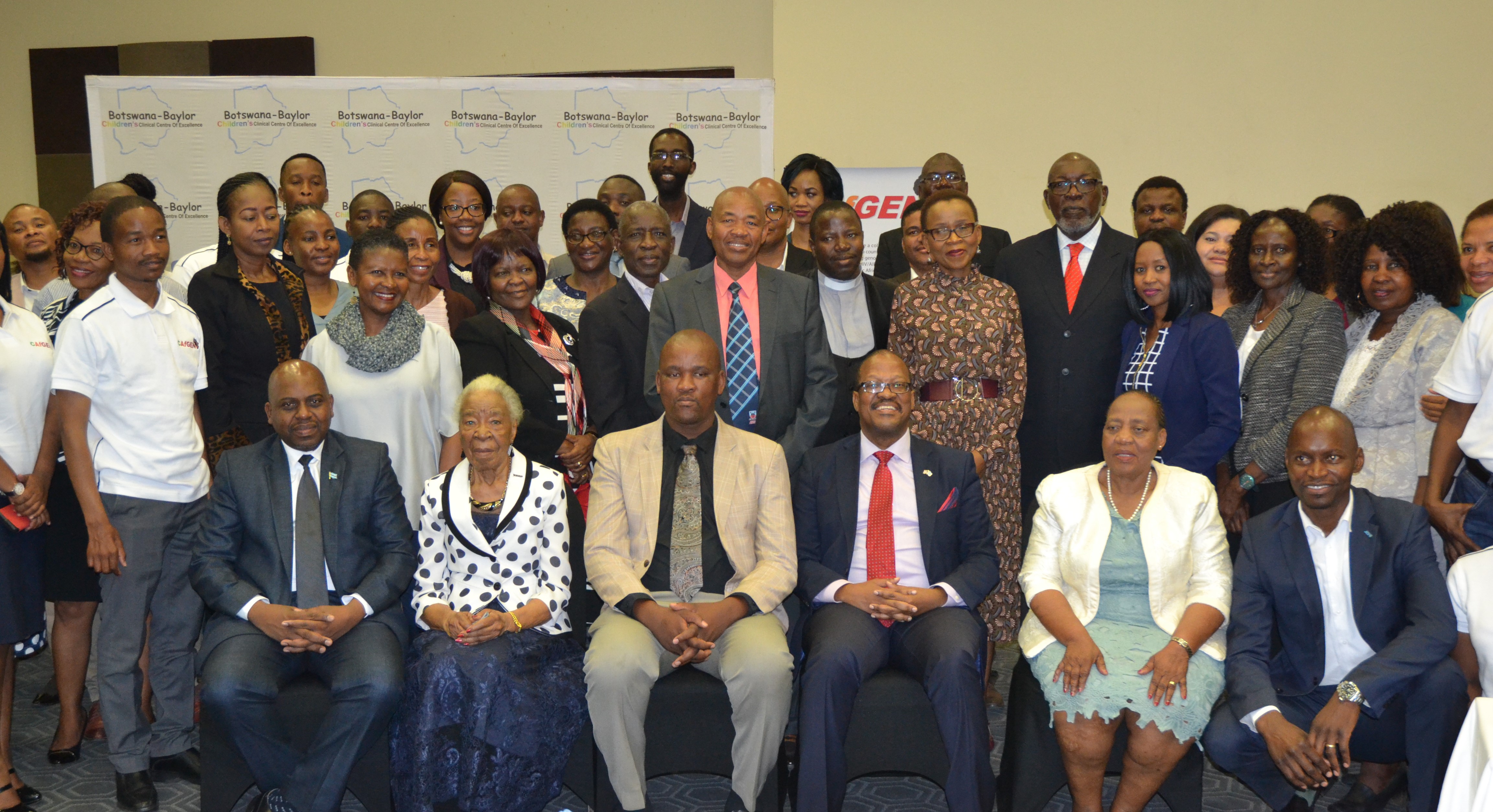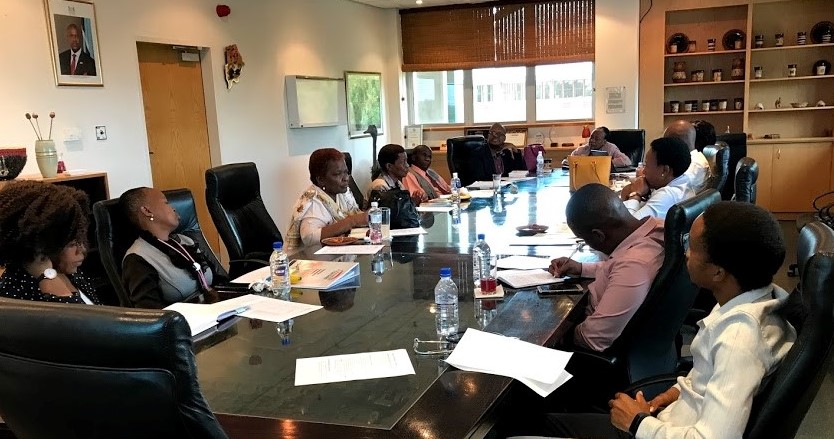The Collaborative African Genomics Network (CAfGEN) is a Human Heredity & Health in Africa (H3Africa) affiliate and National Institutes of Health (NIH) funded study coordinated at Botswana-Baylor Children’s Clinical Centre of Excellence (BBCCCOE). The programme aims to integrate genetics and genomics technologies to explore genetic factors that are important to the progression of HIV and HIV-TB infection in children in sub-Saharan Africa.
The CAfGEN study is a collaboration between six sites; Botswana-Baylor Children’s Clinical Centre of Excellence, University of Botswana (Botswana), Baylor College of Medicine (USA), Makerere University, Baylor College of Medicine Children’s Foundation Uganda (Uganda) and Baylor College of Medicine Children’s Foundation Swaziland (eSwatini).
 Image 1 | Delegates at the CAfGEN launch
Image 1 | Delegates at the CAfGEN launch
The CAfGEN project's vision is to have “a future where African Scientists are using genomics approaches to improve the health problems on their continent...’’ Its mission is to create, as part of the H3Africa Consortium, a collaborative, multi-disciplinary, multi-institutional, inter- and intra-country network of African scientists, clinicians, and researchers to use genomics approaches to study gene/pathogen interactions for HIV/AIDS, its co-morbidities, and other diseases among diverse paediatric African populations.
CAfGEN Objectives
The broad objectives of the CAfGEN study are to:
- Conduct a retrospective study on the genomics of pediatric HIV progression
- Carry out a prospective genomics study on TB disease progression in children with HIV infection
- Work to establish genomics capacity, including enabling technology and expertise in Botswana, Uganda and Eswatini
- Address Ethical, Legal and Social Issues (ELSI) related to genomics research by effectively engaging local communities through different methods
- Recruit young people (up to age 21 years) who are HIV positive from Botswana-Baylor, Baylor eSwatini and Baylor Uganda who are already in clinical care
 Image 2 | CAfGEN CAB and study team during monthly meeting
Image 2 | CAfGEN CAB and study team during monthly meeting
Community Engagement
The CAfGEN project uses a Community Advisory Board (CAB) as a method of engaging local communities. The CAB was established in 2014 and it meets once a month with coordination by the Community Engagement Liaison Officer. It comprises of representatives from government and non-government sectors with experience and expertise in health, young people, social welfare, traditional knowledge, legal issues, gender and human rights. The CAB acts as a intermediary between the community and the researchers. The CAB aims to introduce the CAfGEN study to the community to raise awareness about genetic research.
The CAB works to ensure the community is actively involved in the study as well as ensuring that the rights and welfare of participants in research studies are protected. The group also supports the advancement of HIV/AIDS and genomics research. Members attend local meetings to provide feedback on issues under discussion, and advise in the development and implementation of study participant recruitment and retention strategies.
 Image 3 | Covers from the comic book project
Image 3 | Covers from the comic book project
The project also developed four 'Genome Adventures' comic books. During the final stage of development, the books were piloted with local schools to check relevance and level of understanding. Feedback on illustrations, script and general impressions about the books was provided. They were launched in Botswana, Uganda and Tanzania. Hard copies were distributed in Botswana, the comics are also available in media platforms such as Android phone apps. To find out more see the Mesh project report HERE.
The study also ran Media Workshops with both journalists and cartoonists invited. At these workshops, the journalists and cartoonists spent time with scientists and field experts to better understand and appreciate genomics and biomedical research. Additional stakeholder engagement was achieved during the CAfGEN launch, which was an opportunity to update relevant and/or involved stakeholders about the progress of the project. The team also run Journal Clubs to educate clinicians and non-clinicians at Botswana-Baylor about genetics.
The Future
The project is still ongoing (it is expected to end in late 2022), and the comic books in particular were well received by the audience. It was a great start to introduce genetics to the community. More comics could be written about other diseases to educate the public. The CAB plays a vital role in order to observe ELSI in genomics research.
Twitter page: @CAfGEN1
Facebook: https://www.facebook.com/cafgen
Website: https://www.botswanabaylor.org
This report is part of the H3Africa: Engagement with Genetics and Genomics Programme Hub
This work is licensed under a Creative Commons Attribution 4.0 International License


Please Sign in (or Register) to view further.